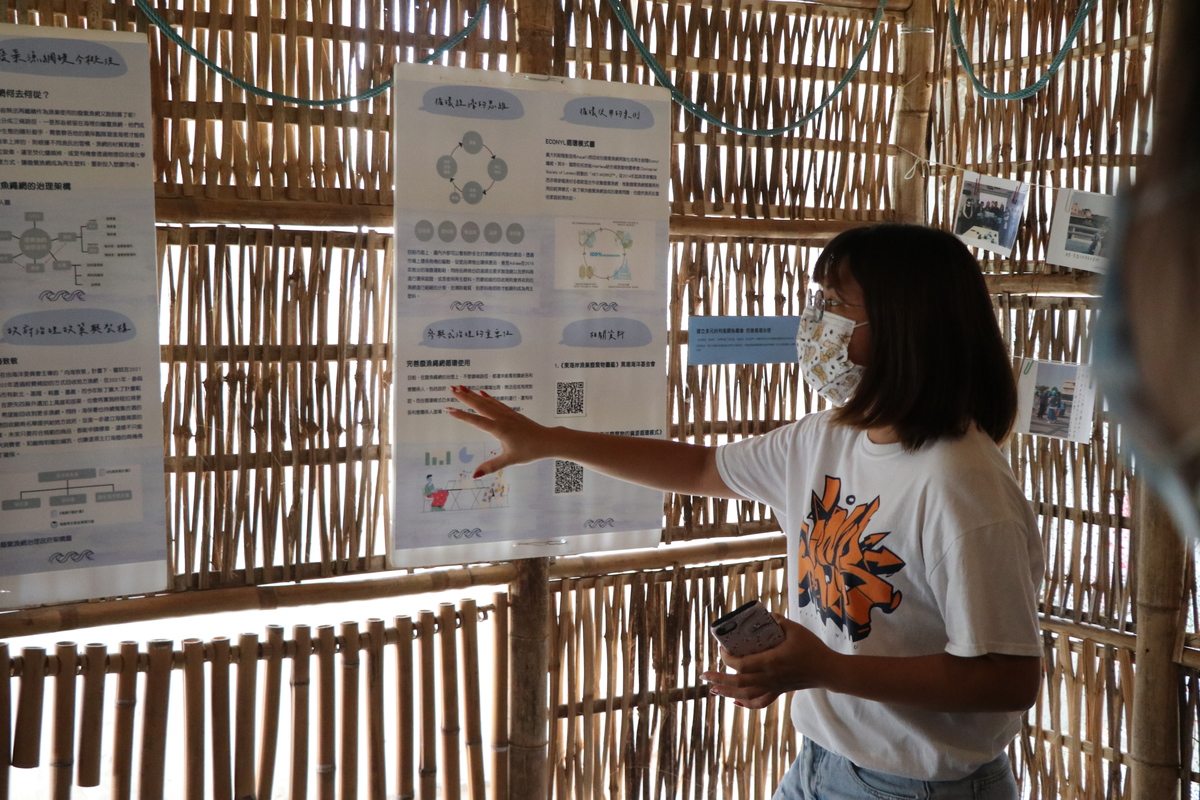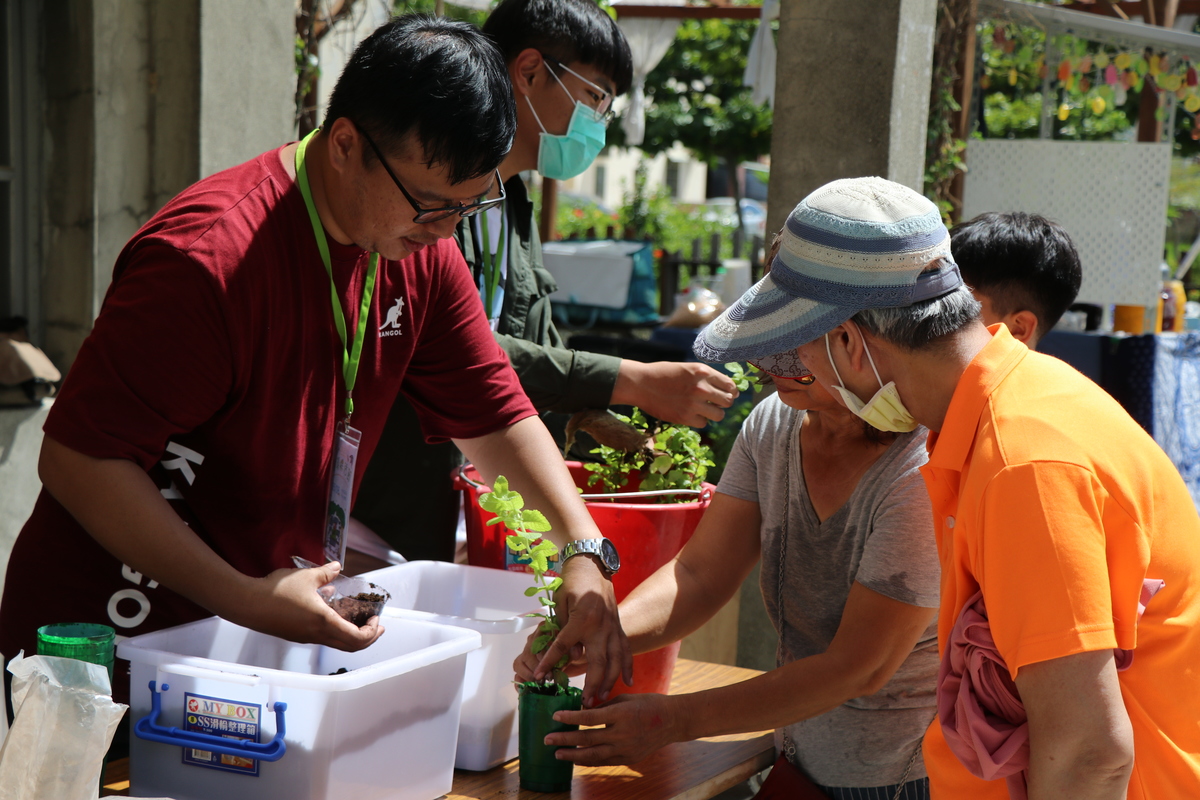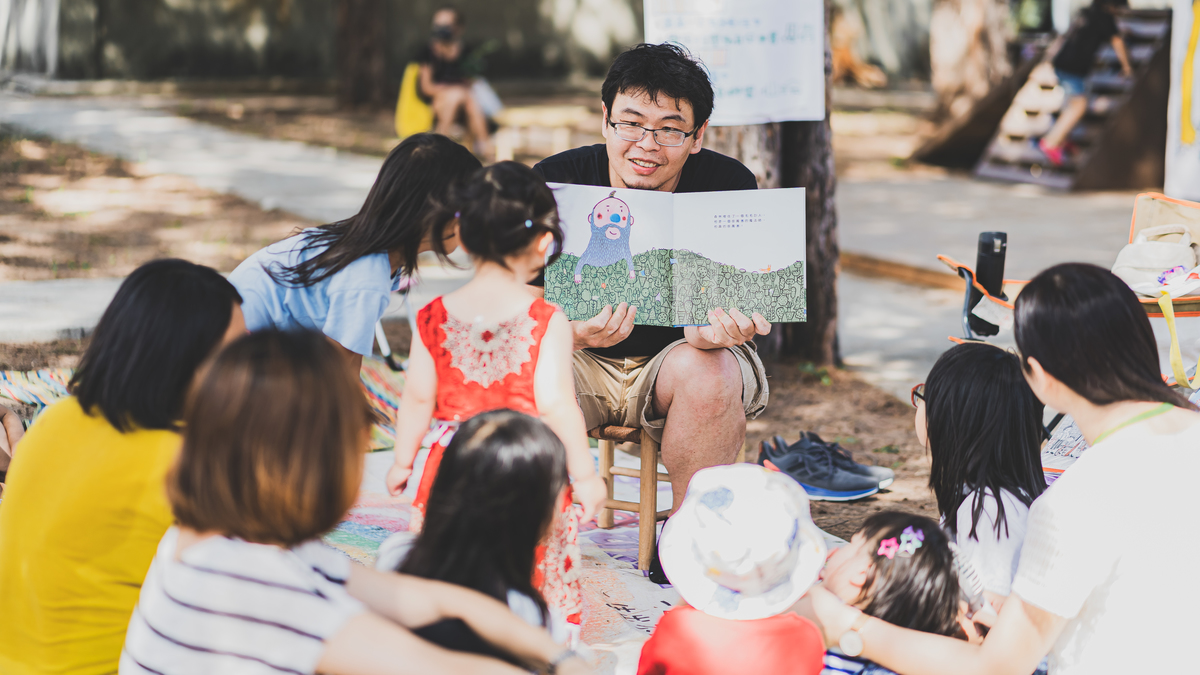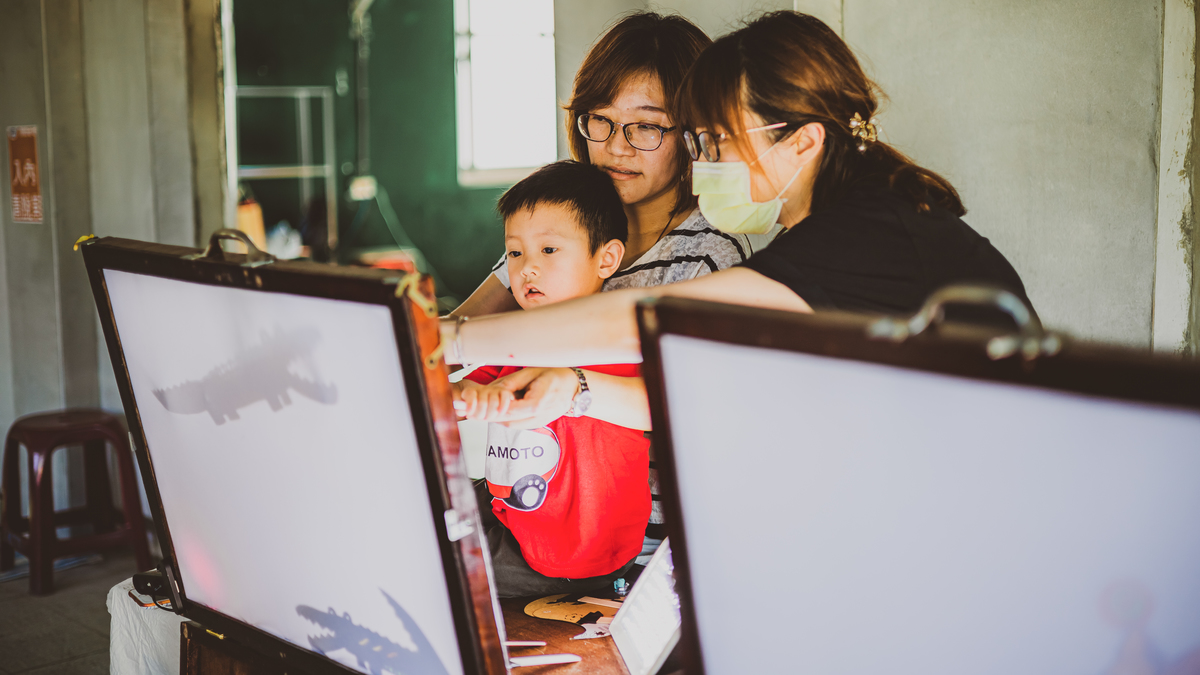On the day before Mother’s Day in Taiwan, to cherish Mother Earth and promote the idea of environmental sustainability, NSYSU’s USR Project: The City as a Commuseum – Socially Embedded Community Engagement, together with local collaborators organized the 2021 Cijin Circular Economy & Green Life Festival in Cijin Social Development Base in Cijin Island, Kaohsiung. The event concentrated on citizens’ direct involvement in pro-environmental activities.
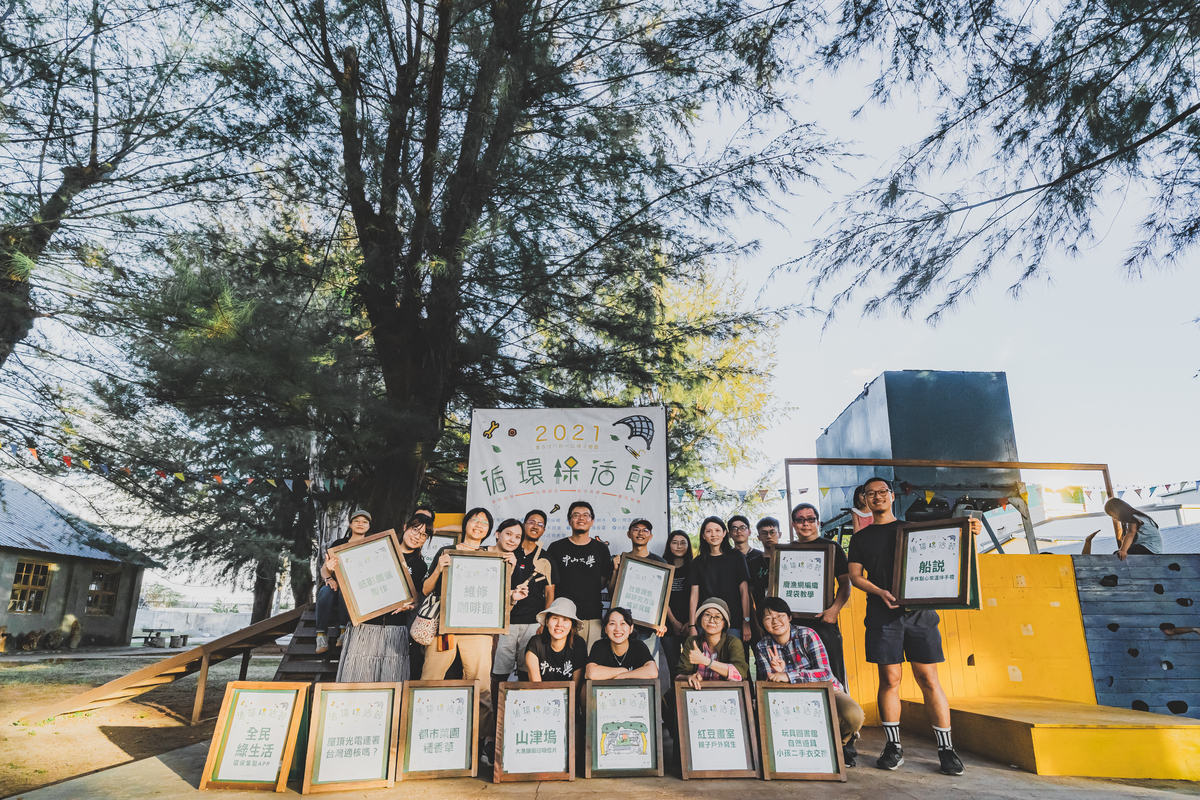
2021 Cijin Circular Economy & Green Life Festival in Cijin Social Development Base in Cijin Island included a series of activities promoting sustainability and an environmentally-friendly lifestyle.
We wanted to respond to United Nations’ Sustainable Development Goals, such as ‘Affordable and Clean Energy, ‘Responsible Consumption and Production’, ‘Sustainable Cities and Communities’, ‘Climate Action’ or ‘Life Below Water’, said the main organizer of the Festival, Associate Professor Hua-Mei Chiu of the Department of Sociology and Co-Principal Investigator of the USR Project: The City as a Commuseum – Socially Embedded Community Engagement.
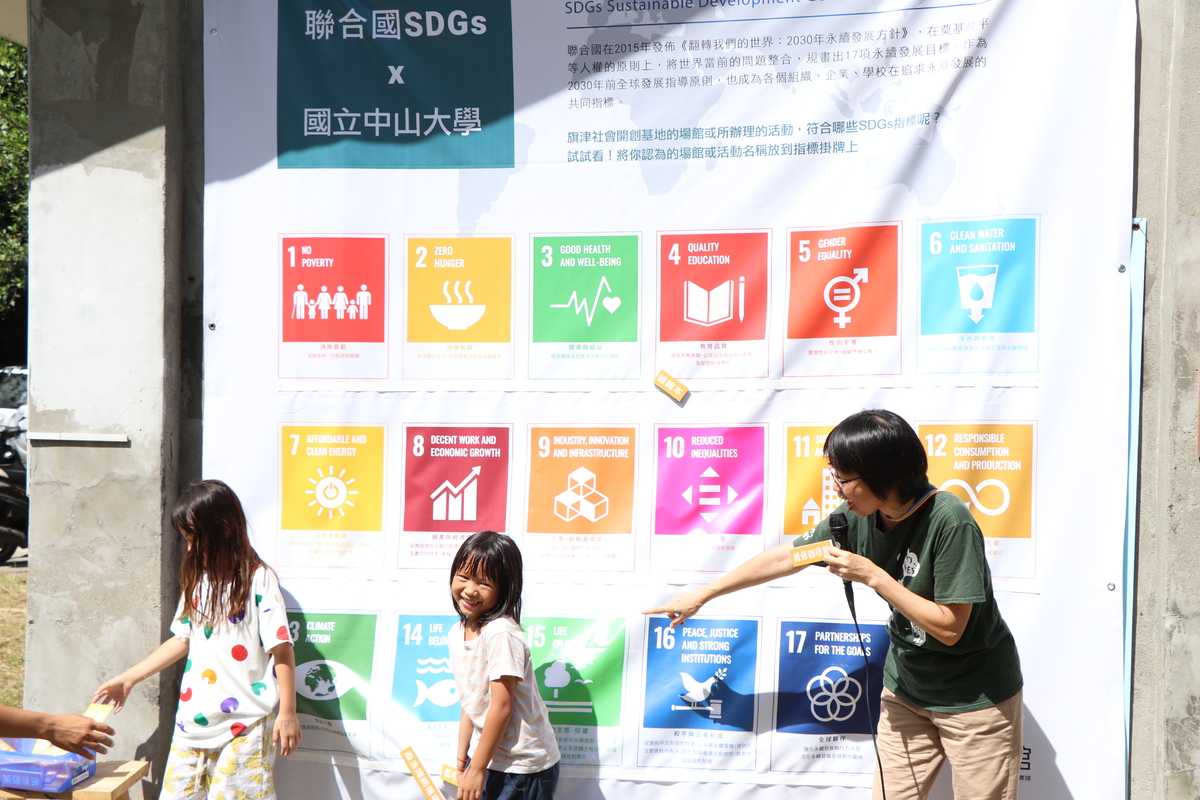
We wanted to respond to United Nations’ Sustainable Development Goals, such as ‘Affordable and Clean Energy, ‘Responsible Consumption and Production’, ‘Sustainable Cities and Communities’, ‘Climate Action’ or ‘Life Below Water’, said the main organizer of the Festival, Associate Professor Hua-Mei Chiu
These initiatives demonstrated different ways to care for the Earth: repairing, reusing, repurposing, and exchanging things, reducing plastic use, using renewable energy and sharing resources to reduce carbon emissions, and educating the youngest generation to create a better future of our Planet. The participants could prolong the lifespan of various objects by having them repaired at the Repair Café station, turn discarded fishing nets into useful bags, eat popcorn and ice desserts made by using solar energy, use waste paper to make puppets for shadow plays, register membership for YouBike rental system, sign a petition against nuclear energy in Taiwan, and exchange children’s toys and clothes.
The Festival’s Repair Café station was another one of the regularly held events of the Southern Taiwan Repair Café Alliance, established earlier this year and aimed at addressing the problem of electric devices “designed for death” and other things ending up on landfills far too soon. The visitors brought small electric appliances, such as a water boiler, microwave oven, rice cooker, electric fan to have them repaired by a group of trained volunteers. Repairing contributes to environmental sustainability and helps reduce CO2 emissions by prolonging the lifespan of devices and preventing them from ending up on landfills, said Professor Chiu. During the event, 8 out of 19 devices, of a total weight of nearly 19 kg, were successfully repaired, saving 165.5 kg of CO2 emissions.
Discarded fishing nets floating in the oceans are a serious threat to marine life, which is increasingly becoming a global concern. However, they can be a useful material that can be recycled into other objects. The students of the Social Survey and Research Method course at the Department of Sociology prepared an exhibition to raise awareness of the environmental problem of discarded fishing nets and together with the visitors joined a workshop led by the artists of 67 Textile Studio who showed how to turn nets into shopping bags.
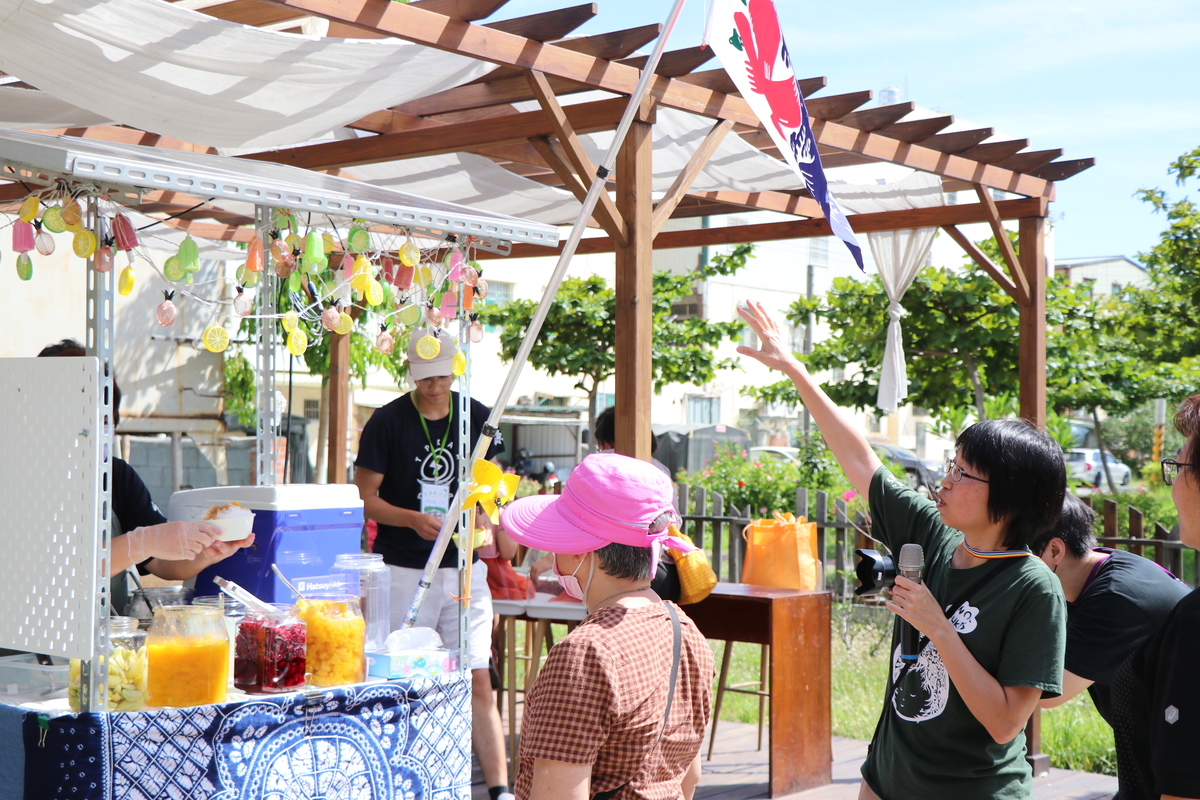
Taiwan Citizens' Alliance for Independent Power Generation used the energy generated by a solar panel to make popcorn and ice desserts.
Renewable energy sources are an important way to reduce our dependency on fossil fuels and excessive CO2 emissions that cause such global problems as climate change, ocean acidification, and air pollution. Taiwan Citizens’ Alliance for Independent Power Generation showed how the energy from a solar panel can be used to make popcorn and ice desserts. Many participants found this to be a very innovative use of new technologies.
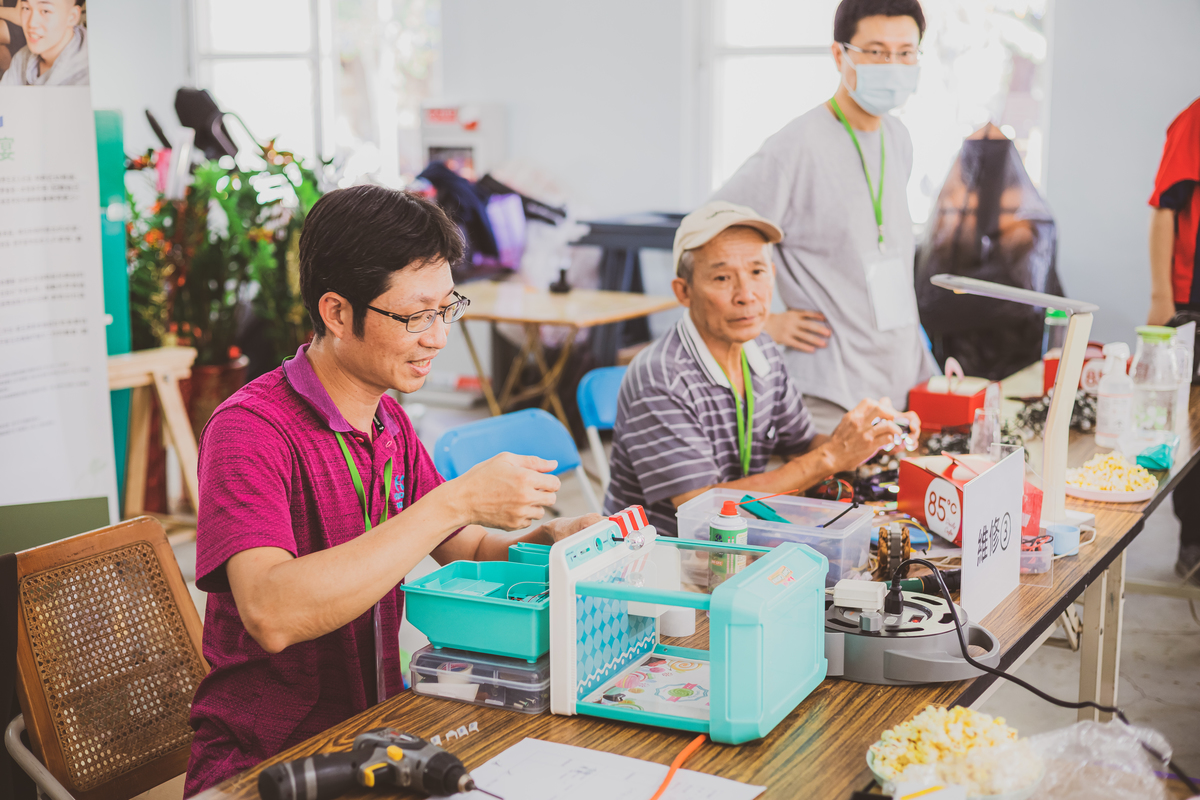
During the event, the Repair Café successfully repaired 8 out of 19 devices, of a total weight of nearly 19 kg, saving 165.5 kg of CO2 emissions.
NSYSU’s USR Project: The City as a Commuseum – Socially Embedded Community Engagement, the main organizer of the 2021 Cijin Circular Economy & Green Life Festival, aims at connecting with the local community, the industry, government, and academic resources to create innovation across boundaries and pass on local cultural heritage. The event was a collaboration between the University’s Department of Sociology, the micro-program in Sustainable Development and Social Innovation, volunteers of the rooftop vegetable garden of the College of Social Sciences, and several local organizations involved in pro-environmental initiatives: Kaohsiung First Community University, Small Home Appliances Clinic, Southern Taiwan Repair Café Alliance, Taiwan Obasan Political Equality Party, Association of Parent Participating Education in Taiwan, Citizen of the Earth – Taiwan, and Taiwan Citizens’ Alliance for Independent Power Generation. They have been engaged in their projects long-term and the Festival was an opportunity to share the results of their work with the local community, said Professor Chiu.

